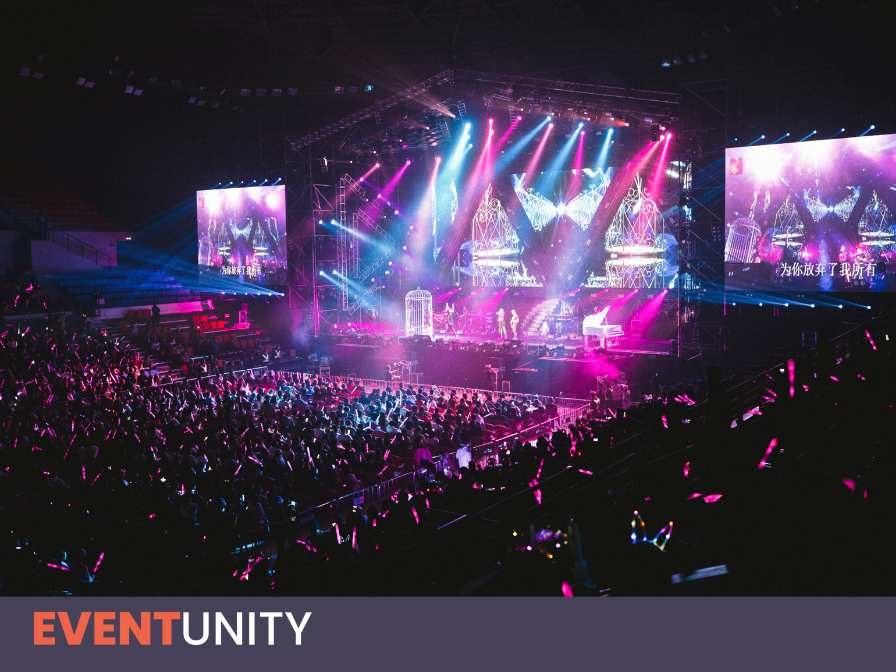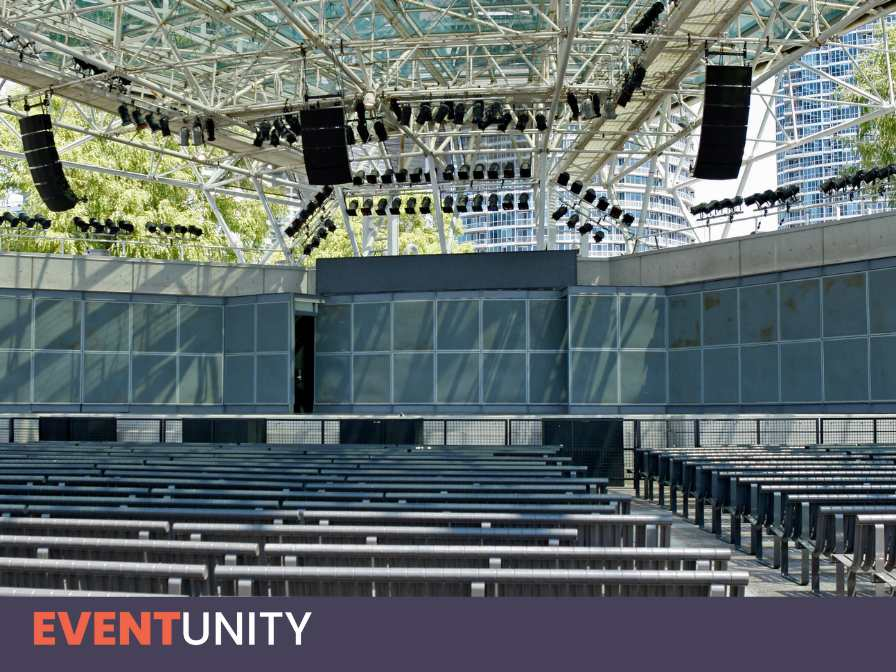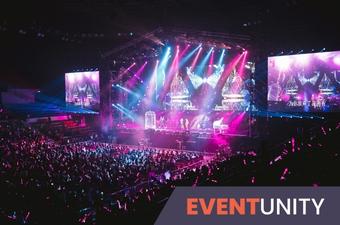Being a concert promoter isn’t necessarily for the faint-hearted. You have to have a passion for the music you want to promote and a good work ethic to succeed in this highly competitive industry.

I was a successful concert promoter for over ten years, promoting a variety of live music and club night events, and I’m going to share with you some of the skills I picked up along the way.
A concert promoter is responsible for “putting on the show”, that is to say they perform the following functions:
- Booking venues
- Negotiating with agents
- Booking the bands,
- Arranging ticket sales
- Advertising the show
- Arranging all of the technical requirements
- Setting sound check and performance times
Most concert promoters aren’t tied to a venue, but sometimes they can be.

Concert promoters book or hire venues where they want to promote shows. If they already work at a venue, the roles are still very similar.
I was a venue manager for over 10 years (I didn’t own the venue), and promoted countless live shows, club nights and other performances. No two shows are the same, and concert promoter jobs can be hard work.
It’s often sold as a glamorous role, but the reality is a concert promoter will spend hours sitting at a computer or on the phone arranging a multitude of different things such as venue operations or press releases.
BUT….it’s worth it all when the show has sold out, you’ve made your money, and you can see people having a good time. That’s the passion that drives a concert promoter.
So let’s delve into that role a little deep to see exactly what a concert promoter actually does.
What does a concert promoter do?
A concert promoter may be an employee of a venue, own the venue, work for a concert promotion company or be a freelancer who uses different venues. Some concert promoters start just by hiring small venues and promoting local bands before moving up to buy their own venues.
Concert promoters work with venues of all sizes, from small events doing open mic nights to 10,000+ capacity arena shows or major outdoor festivals for companies like Live Nation.
There are plenty of similarities across these different levels, so let’s dive into this in more detail to understand what some of the concert promoter jobs are.
Working with agents
The one thing you need to realise about booking agents is that they work for the band, not the concert promoter. They usually get a % commission from the booking fee you pay.

When bands are looking to build a fan base, their agent will try to ‘route’ a series of gigs in succession. This might form the basis of a larger tour.
A concert promoter needs to understand where any particular band is in their journey. Are they playing 100, 300, 1,000 or 10,000 capacity shows? Correctly identifying this will save you from wasting the agent’s time.
Negotiating with agents is a tricky business. Be careful of just asking what the price is, the answer you get will be determined by a number of factors: how well the agent knows you if you have booked previous shows, the potential to ‘route’ a band tour your way and the popularity of the band. There may still be some wiggle room in that price if you have some good haggling skills.
Negotiation doesn’t just end with the price. A concert promoter must also sign off on the band’s rider requirements.
After all of this has been agreed, a contract is signed. Once you pass this point, there is a legal commitment to delivering everything agreed, so make sure you are happy and can deliver it or there will be trouble ahead. The agent may have a representative on-site at the gig to ensure everything goes off as agreed.
Working with bands to get them to play.
If you’re aiming to just host local bands with a small capacity venue then you may find that you need to deal with the band directly or (if they have one) a local manager. It’s not uncommon for that manager to be a parent or a close family friend, in my experience!
In this situation, negotiation can be much more informal. However, everything should still be agreed upon in advance and a simple contract or agreement signed to avoid any unnecessary confusion or issues on the day.
Arranging the tickets
Once the venue and bands are confirmed, then, the tickets need to be put on sale. Concert promotion is all about selling tickets, well for the most part. Ensuring the number of tickets sold covers the cost of putting the event on is crucial.
If the concert promoter knows there will be demand for the tickets, they may want to spend some time building up the sale date, using it to their advantage to build things like their email list in exchange for priority access.
If tickets are likely to be in demand, then a robust and trusted online ticketing platform needs to be used. When deciding on which ticketing system to use for a live show, consider the following factors:
- The price of the tickets
- % service charge by the ticketing platform
- % charge by payment fees
- The delivery method of the ticketing platform
Ideally, a system that has the lowest charges, is robust and automates ticket delivery is going to be the best option. Do some research to find out those that best suit your needs, you can find some of the best ticketing platforms on our resources page.
Advertise the show
Advertising a show is probably the most important job that a promoter does. A lot will depend on the size of the show, the location and the resources available.
One key thing to know about advertising it’s that if you’ve thought you’ve done enough, you probably haven’t! Many people underestimate the amount of work and time needed to promote a show correctly.
Another word on agents here is that they will often want to sign off on the artwork to ensure correct logos and agreed positioning (headliner/support act, etc.).
For large shows (10,000+), the lead time for promotion and advertising could be up to or over 12 months.
Clearly, in today’s world, marketing events online is the key place. However, there is a big difference between being a prolific USER of social media and being a COMPETENT promoter on it.

Concert promoters must be very good at understanding how to use social media for business. Here is another post on how early you should start to promote an event on social media.
It’s really important first to understand who your target audience is, then serve them relevant and timely advertising and promotion in places they will see it. That goes for both online and offline advertising.
If there were three general areas to focus on, they would be:
- Listing on the venue website and included in the venue email drop
- Building your own email list (if not the venue owner)
- Build hype on your social media channels.
Arranging the riders
There are two types of riders that most concert promoters will be concerned with, the technical rider and the entertainment rider. Both should have been agreed upon in advance with a band’s agent or other representative.
Mostly the technical rider should be fine; a concert promoter should have a good sound engineer to hand. Many of the technical staff in the industry work as freelancers, so it pays to maintain a good relationship with a handful of the crew, so they always have people to call on.
Most of the fun comes from agreeing to the entertainment rider requirements that will include food and drink for the band and their crew, alcohol requirements, number of dressing rooms and much more. A good concert promoter should not be afraid to push back on the agent if they think anything is unreasonable.
Again, with both of these, failure to provide the detail agreed upon will result in major headaches for the concert promoter on the day. The key is being organised in advance to ensure everything is taken care of.
Set soundcheck and performance times
The concert promoter will need to specify the set time in accordance with the venue’s curfew times. This varies depending on their license and, in particular, if the venue is outdoors (likely to be earlier).
Concert promoters will also set things like the band ‘get in’ time, sound check times, opening times and running order. There may be a requirement on finishing times due to licensing or noise restrictions.
What skills do you need to be a concert promoter
Being a concert promoter is a tough job, but potentially hugely rewarding. . But those opportunities are often few and far between, so what other skills are important?
A concert promoter needs the following skills: negotiation, organisation, excellent personal communication, financial management and marketing.
How to become a concert promoter
You can search for concert promoter jobs online, (set up a job alert on major job websites), but in my experience you should seek work experience with a local venue or concert promoter, offer to help, have a flexible schedule and be open to learning new skills.
You do not need a bachelor’s degree to be a concert promoter, most of the skills you need you can learn through experience.
As you gain more experience you may want to try promoting your own events. Start small and then grow from there.
Do promoters make a lot of money?
Discovering the next big thing and booking them just as their profile is taking off can help to really earn a concert promoter good money.

